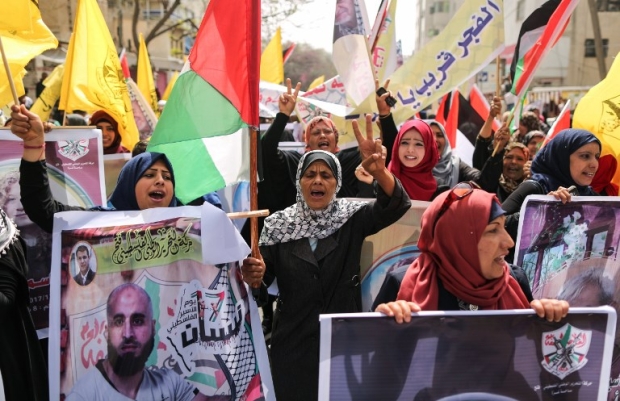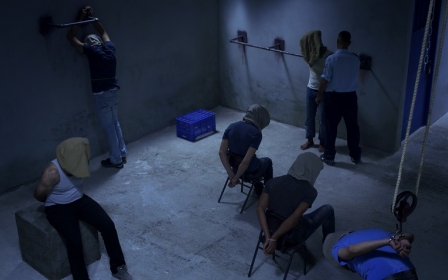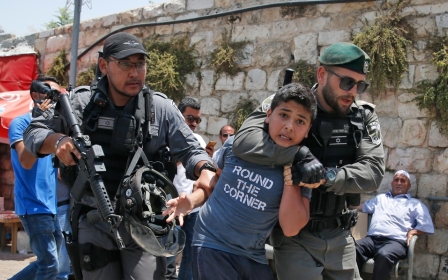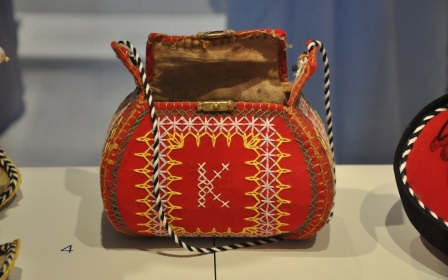What's behind Israel's crackdown on Palestinian prisoners?
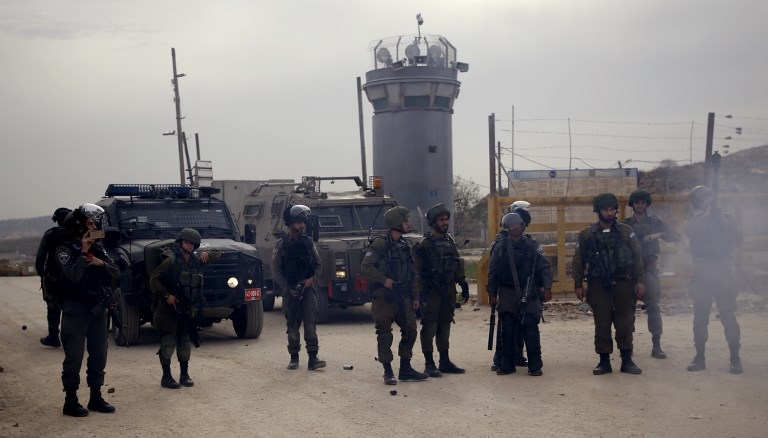
This week, guards at the Israeli military prison Ofer conducted a series of large-scale raids on Palestinian prisoners.
Cells were ransacked, personal belongings were destroyed and invasive strip searches conducted. For many prisoners, the worst aspect was the confiscation of photos, letters and simple gifts from family members collected over the years - a lifeline for those who face decades of incarceration.
Prisoners were also made to take off their clothes and wait for inspection outside in the bitter cold.
These are not new methods or tactics, but rather ones that are used periodically as a form of collective punishment against Palestinian prisoners.
Collective punishment
The latest suppression in Ofer was met with collective resistance from prisoners, who refused to cooperate with Israeli forces. As a result, they were met with tear gas, tasers, beatings, police dogs and even rubber bullets shot at close range.
Most communities and families are intimately aware of what it means to have a loved one incarcerated
More than 150 had to receive medical attention, with six prisoners enduring fractures and more than 40 suffering head injuries. Many suffered from serious tear gas inhalation as a result of gas bombs being thrown into enclosed cells.
Addameer, the Prisoner Support and Human Rights Association, subsequently issued a statement calling on the International Committee of the Red Cross to investigate these “gross violations” of international law and to provide protection for Palestinian prisoners.
In response to this and in solidarity with prisoners, demonstrations were organised in both Ramallah and Haifa. At the latter demonstration, two Palestinian activists were arrested by Israeli police.
Torture and harassment
Indeed, the issue of prisoners is an important one in Palestinian society - and it affects many people. Since 1967, 40 percent of the adult male population in the West Bank and Gaza - or roughly 800,000 people - have been subjected to some kind of detention by Israel.
Most communities and families are intimately aware of what it means to have a loved one incarcerated. There are currently 5,500 Palestinian political prisoners, according to Addameer’s data.
Another mechanism used by the Israeli regime is administrative detention, which allows it to hold detainees indefinitely without charge or trial. The longest such detention lasted eight years.
Essentially, the whole system is designed to disrupt and punish Palestinian society, with its 99 percent conviction rate and lengthy sentences.
Gendered violence
Prisoners are also facing a crackdown at Damon prison. Unbeknownst to many inside and outside of Palestine, last month, the Palestinian female prisoner contingent (54 people) were moved from Hasharon prison to Damon, a facility near Haifa. The conditions are significantly worse, with overcrowded cells and showers outside in the cold, and many were denied their belongings from their previous prison.
Israel’s gendered violence against female prisoners is well documented by Palestinian NGOs and human rights groups. Tactics used against them include threats, sexual harassment, denial of sanitary towels and general humiliation.
Israel is probably the only country in the world to routinely prosecute minors in a military court system. Thousands of Palestinian children have been arrested and prosecuted through the military courts over the past two decades.
The bitter irony is that Palestinians in the West Bank and Gaza already live in an open-air prison. Their movement is limited to certain spaces, and they are consistently under surveillance. Nearly all aspects of their lives are controlled by Israel, while the system of incarceration continues to violate international law with impunity.
- Yara Hawari is the Palestine Policy Fellow for Al Shabaka - The Palestinian Policy Network. She completed her PhD at the University of Exeter in Middle East politics and frequently writes for various media outlets.
The views expressed in this article belong to the author and do not necessarily reflect the editorial policy of Middle East Eye.
Photo: Israeli forces stand at one of the entrances to Israel’s Ofer prison in December 2016 (AFP)
New MEE newsletter: Jerusalem Dispatch
Sign up to get the latest insights and analysis on Israel-Palestine, alongside Turkey Unpacked and other MEE newsletters
Middle East Eye delivers independent and unrivalled coverage and analysis of the Middle East, North Africa and beyond. To learn more about republishing this content and the associated fees, please fill out this form. More about MEE can be found here.



